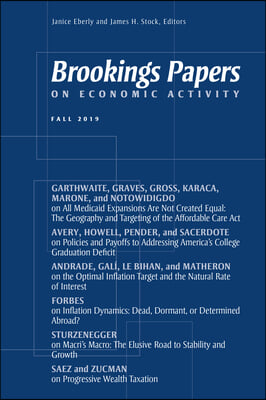Effects of COVID-19 on Federal, State, and Local Government Budgets
IF 2.8
3区 经济学
Q1 ECONOMICS
引用次数: 14
Abstract
ABSTRACT:This paper examines how the COVID-19 pandemic and the associated policy responses affected federal, state, and local government budgets. The pandemic raised federal deficits temporarily but has had a modest effect on long-term budget projections, in part because of sharply lower projections of interest rates. With low interest rates and the economy in recession, the debt accumulation resulting from the pandemic does not require immediate offsetting policies. For state and local governments, we note the unusual nature of the current recession: the concentration of job losses among low-wage workers; the unprecedented increases and expansions of unemployment insurance benefits and business loans; and strong performance by the stock market. To address these issues, we use a bottom-up approach that accounts for the geographic variation in economic outcomes. Relative to analyses based on the historical relation between revenues and the unemployment rate, we estimate notably smaller revenue losses. We further estimate that federal aid has been large relative to these revenue losses, but not necessarily relative to need—for public health, remedial schooling, services for the elderly, and others—especially if the pandemic persists and especially in certain hard-hit states.COVID-19对联邦、州和地方政府预算的影响
摘要:本文考察了2019冠状病毒病大流行和相关政策应对对联邦、州和地方政府预算的影响。大流行暂时增加了联邦赤字,但对长期预算预测的影响不大,部分原因是利率预测大幅下降。在低利率和经济衰退的情况下,大流行造成的债务积累不需要立即采取抵消政策。对于州和地方政府,我们注意到当前经济衰退的不同寻常之处:失业集中在低薪工人身上;失业保险福利和商业贷款的空前增加和扩大;股市表现强劲。为了解决这些问题,我们使用了一种自下而上的方法来解释经济结果的地理差异。相对于基于收入和失业率之间历史关系的分析,我们估计收入损失明显较小。我们进一步估计,联邦援助相对于这些收入损失来说是很大的,但不一定相对于公共卫生、补习教育、老年人服务等方面的需求——特别是如果疫情持续,特别是在某些受灾严重的州。
本文章由计算机程序翻译,如有差异,请以英文原文为准。
求助全文
约1分钟内获得全文
求助全文
来源期刊

Brookings Papers on Economic Activity
ECONOMICS-
CiteScore
10.10
自引率
0.00%
发文量
12
期刊介绍:
The Brookings Papers on Economic Activity (BPEA) is a semi-annual academic conference and journal that pairs rigorous research with real-time policy analysis to address the most urgent economic challenges of the day. Working drafts of the papers are presented and discussed at conferences typically held twice each year, and the final versions of the papers and comments along with summaries of the general discussions are published in the journal several months later. The views expressed by the authors, discussants and conference participants in BPEA are strictly those of the authors, discussants and conference participants, and not of the Brookings Institution. As an independent think tank, the Brookings Institution does not take institutional positions on any issue.
 求助内容:
求助内容: 应助结果提醒方式:
应助结果提醒方式:


